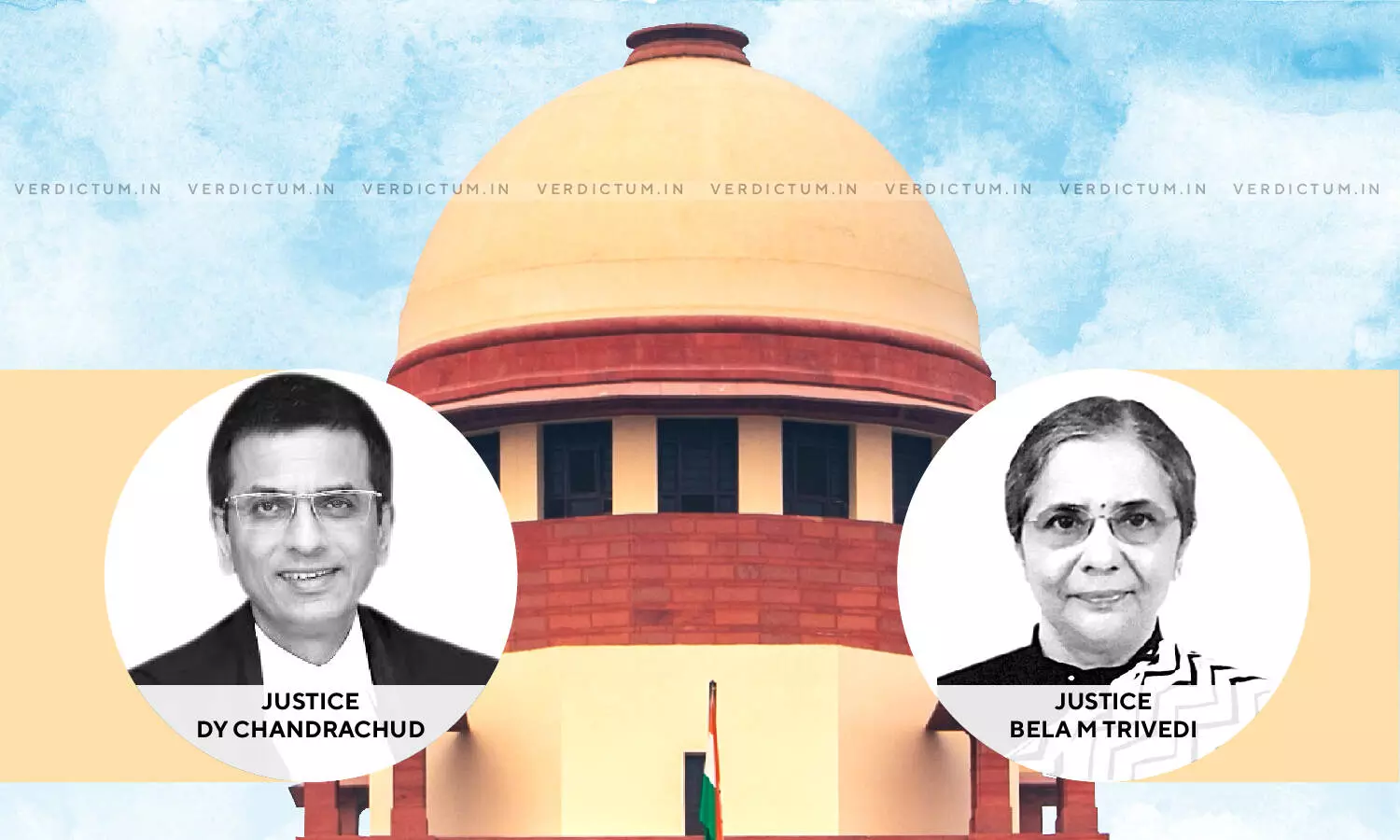
Equal Pay for Equal Work Not a Fundamental Right Rather A Constitutional Goal To Be Achieved By Government - Supreme Court
 |
|A two-judge Bench of Justice D. Y. Chandrachud and Justice Bela M. Trivedi while interpreting the Indian Forests Service (Pay) Second Amendment Rules, 2008 has held that the pensioner was not entitled to upgradation of the pension amount as he retired (in 2001) much before the amendment came.
The Government of India, Ministry of Personnel Public Grievances and Pensions (Department of Personnel and Training) in the exercise of powers conferred under All India Services Act, 1951 and in supersession of the Indian Forest Service (Pay Rule 1968) made rules named Indian Forest Service (Pay Rule 2007) these rules were again amended and called Indian Forest Services (Pay) Second Amendment Rules, 2008. These rules provided for the upgradation of the post of Principal Chief Conservator of Forest (PCCF) to be designated as Head of Forest Force (HFF) in each State Cadre. It also provided for the apex scale at Rs. 80,000. It also provided that the said upgradation was to be made w.e.f. 27th September 2008 and the said post was to be filled by selection.
Respondent had retired from the post of PCCF on 31st December 2001. On 2nd April 2011, the Respondent made a representation to the Government of India requesting to revise his pension as per the Indian Forest Service (Pay) Second Amendment Rules, 2008, which was rejected by the Government of India, Ministry of Personnel, Public Grievances and Pensions, Department of Pension and Pensioners Welfare. The aggrieved Respondent filed an OA before the Central Administrative Tribunal which was also dismissed.
The Respondent aggrieved by the order of the Tribunal appealed before the High Court which was allowed by the High Court and held that the Respondent would be eligible to get benefit according to the Indian Forest Service (Pay) Second Amendment Rules, 2008. The State of Madhya Pradesh aggrieved by the order approached the Supreme Court where the matter was disposed of and the State was asked to again appeal before the High Court. The Appellant again approached the High Court under a Review Petition which was again dismissed by the High Court.
The issue in the present petition before the Supreme Court was whether the High Court while exercising its powers of the superintendence under Article 227 of the Constitution of India, had misdirected itself by applying the principle of "equal pay for equal work" to the case of the Respondent who had already retired as the PCCF for the purpose of granting him the benefit of the apex scale fixed for the upgraded post of HFF as per amended rules of 2008 and fixing his pension accordingly?
The Supreme Court in the matter observed, "Since the respondent no. 1 had retired as the PCCF in the year 2001 that is much prior to the coming into force of the Amended Rules, 2008, his claim to get the benefit of the apex scale as per the said rules was thoroughly misconceived. The apex scale of Rs. 80,000/- was fixed for the upgraded post designated as the Head of Forest Force w.e.f. 27th September, 2008 and was to be filled up by way of selection and not as a matter of course."
Further, the Bench opined, "As held in State of Haryana and Anr. Vs. Haryana Civil Secretariat Personal Staff Association 2002 (06) SCC 72 "equal pay for equal work" is not a fundamental right vested in any employee, though it is a constitutional goal to be achieved by the Government."
Additionally, the Court also noted that the High Court while exercising power under Article 227 of the Constitution had wrongly rejected the just and proper of the Tribunal, in this context, the Bench further observed -
"It is well-settled legal position that the power under Article 227 is intended to be used sparingly and only in appropriate cases for the purpose of keeping the subordinate courts and tribunals within the bounds of their authority and not for correcting mere errors. In the instant case, the Tribunal had not committed any jurisdictional error, nor any failure of justice had occasioned, and hence the interference of the High Court in order passed by the Tribunal was absolutely unwarranted."
Accordingly, the Court set aside and quashed the impugned order of the High Court and allowed the appeals.